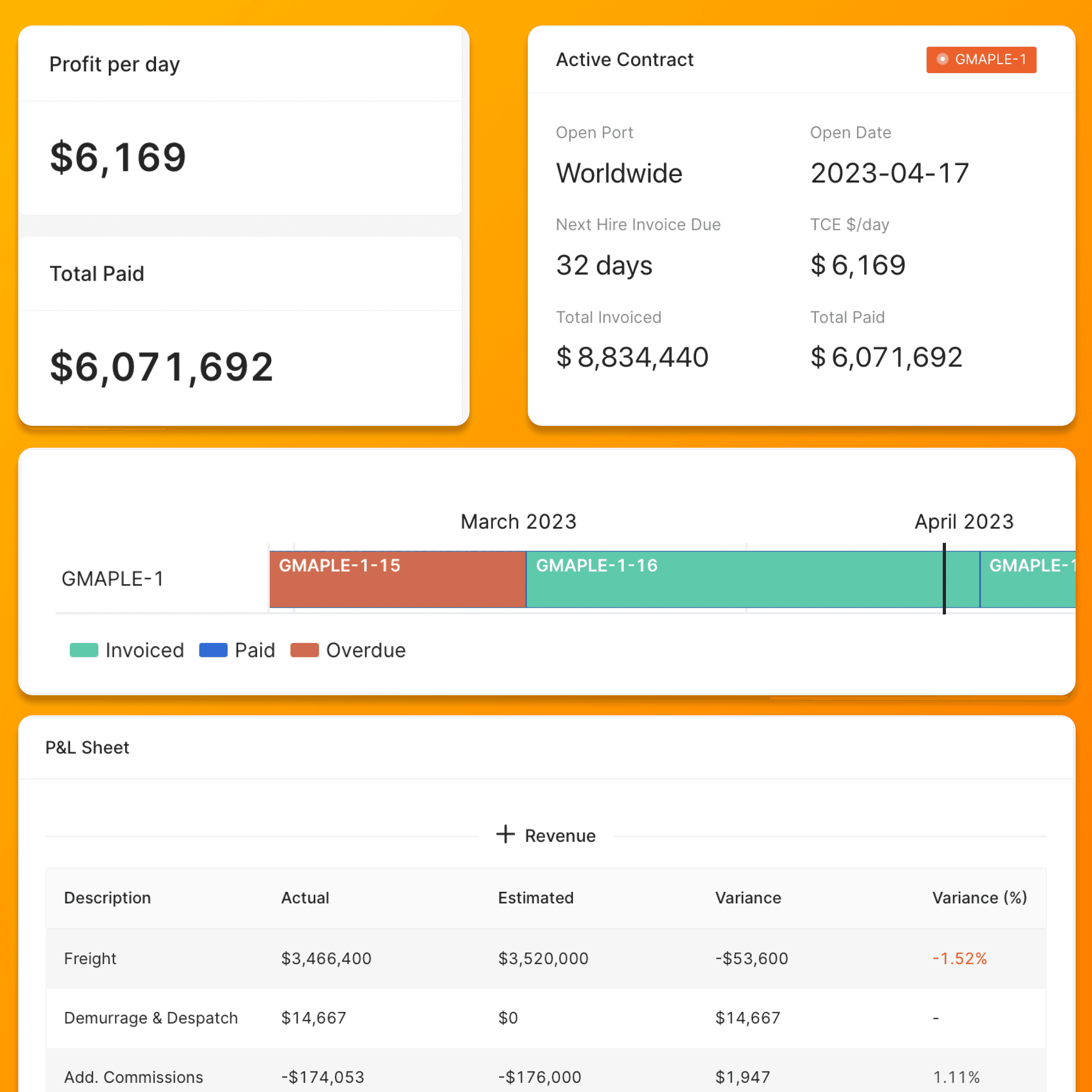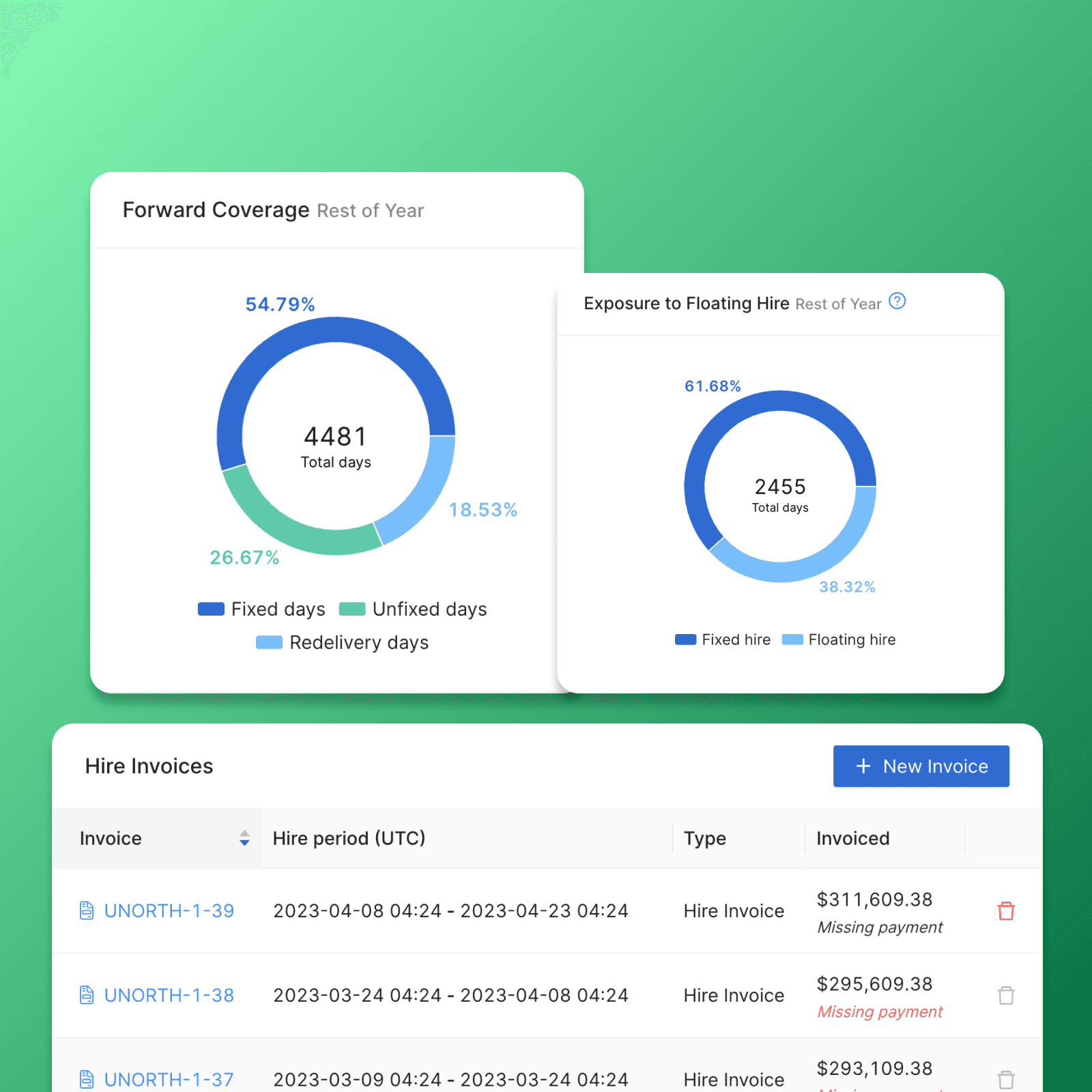Apr 11, 2023
The maritime industry is a complex and dynamic sector that requires efficient management of various operational aspects, including time charters. Ship owners, who lease out their vessels to charterers for a specific period, often face challenges in managing their time charters effectively.
However, with the advent of modern technology, ship owners now have the opportunity to implement a robust system to manage time charters, which can significantly benefit their operations and prepare them for the future. One of the key reasons why ship owners need a system to manage time charters is to improve their cashflow.

Cashflow management is crucial for any business, including the shipping industry. With a time charter management system in place, ship owners can effectively track and manage their charter hire payments, monitor vessel utilization, and optimize their revenue. The system can provide real-time visibility into the status of charter hire payments, reducing delays and disputes, and ensuring that ship owners receive timely payments, thus enhancing their cashflow management.
Transparency is another critical aspect that ship owners can achieve through a time charter management system. The manual processes involved in managing time charters can often be time-consuming and prone to errors, leading to disputes and misunderstandings.
However, with a digital system in place, ship owners can streamline their operations, automate repetitive tasks, and ensure accuracy in their documentation and reporting. This transparency can lead to better communication and collaboration with charterers, resulting in improved business relationships and reduced disputes.Eliminating manual processes is also a significant benefit of implementing a time charter management system. Manual processes are labor-intensive and can be error-prone, leading to inefficiencies and increased operational costs.
With a digital system in place, ship owners can automate tasks such as contract management, voyage planning, and documentation, reducing the dependency on manual processes. This can save time and resources, improve operational efficiency, and reduce the risk of errors, resulting in cost savings and increased productivity.De-risking operations is another crucial aspect that ship owners can achieve with a time charter management system.

The maritime industry is exposed to various risks, such as market volatility, geopolitical uncertainties, and regulatory changes. By leveraging a time charter management system, ship owners can mitigate risks associated with charter parties, ensure compliance with regulatory requirements, and monitor market trends to make informed decisions.
The system can provide alerts and notifications for critical events, such as contract expirations or pending payments, helping ship owners to proactively manage risks and protect their operations.Digitization is the future of the maritime industry, and ship owners need to adapt to remain competitive. By implementing a time charter management system, ship owners can embrace digital transformation and be better prepared for the future.
A digital system can provide a platform for data analytics, machine learning, and predictive modeling, enabling ship owners to gain insights into their operations and make data-driven decisions. It can also facilitate integration with other digital platforms and systems, such as voyage management, port operations, and financial management, to streamline operations and drive efficiencies.In conclusion, ship owners need a system to manage time charters to enhance their cashflow management, bring transparency, eliminate manual processes, de-risk their operations, and digitize for the future.
The maritime industry is evolving rapidly, and ship owners must embrace technology to optimize their operations, improve profitability, and remain competitive in the global market. A time charter management system can provide ship owners with the tools and capabilities needed to effectively manage their time charters, reduce risks, and prepare for the digital future of the maritime industry.
